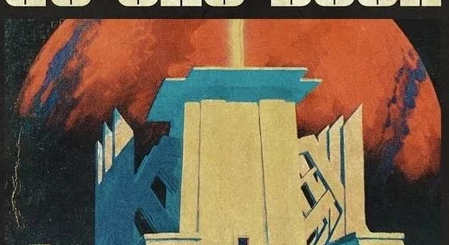Life Is Simple in the Moonlight by The Strokes Lyrics Meaning – Unraveling The Strokes’ Lyrical Elegance
Lyrics
There’s no one I disapprove of more or root for more than myself
I wanted to pretend that it was better, better, better on the phone
I didn’t wanna tell you I was jealous, jealous, jealous and alone
So we talk about ourselves in hell
To forget the love we never felt
All the old jokes that work so well
Universal truth was a moment’s lie
Don’t try to stop us
Don’t try to stop us
Don’t try to stop us
Get out of the way
Got to get to climb your tree in the light of the living ghost I see
She sees her father in that old man’s eyes while secretly he stares at her thighs
Animals on TV singing about some pain they felt at some point
I didn’t wanna tell you I was jealous, jealous, jealous, what’s the point?
As I watch the velvet drapes appear
And the door was closed for forty years
As we hide what we don’t wanna hear
As we hide what’s really in our ears
He is coming from a part of hell
Where lightning blue eyes don’t go down well
He can tell that we’re oblivious
It’s addiction of routine as well
Making fools out of the best of us
Making robots of the rest of us
Innocence itself in America today
Is a crime just like Cornel West might say
Don’t try to stop us
Don’t try to stop us
Don’t try to stop us
Get out of the way
Under the lunar glow, the complex fabric of human emotion often finds a soothing balm, or so The Strokes suggest in ‘Life Is Simple in the Moonlight.’ As listeners, we are transported to a mindscape where the simplicity of life contrasts sharply with the convollected, sometimes excruciating contours of personal and societal drama. Delving into these lyrics reveals depths that many a fan might have missed, capturing a moment of vulnerability shielded in poetic abstraction.
This song, the final track on their 2011 album ‘Angles,’ weaves its quasi-narrative with intricate strings of thought, resonating strongly with the zeitgeist of dissonance and the search for authenticity. There’s an elegance to its melancholy, an embrace of the very contradictions that make us strive to find meaning—whether in the embrace of the night or the glare of the spotlight.
The Dissection of Fame’s Façade
Opening with a cutting remark on animals on television, The Strokes immediately immerse us in the artifice of public pain—the commodification of emotion for entertainment. This introspective gaze forces us to question the genuineness of feelings paraded for audiences, and the stand-in ‘animals’ become a symbol of our own societal performance, a circus where suffering earns its limelight.
Frontman Julian Casablancas doesn’t shy away from self-scrutiny. There’s both a confession of his insecurities and a complex relationship with self-perception. The interaction between public persona and private struggle is a high-wire act, where admission over the phone never quite captures the intensity of one’s internal world.
Yearning for Authentic Connection
Following the theme of miscommunication are the visuals of the ‘velvet drapes’ and ‘closed doors’—barriers to genuine understanding. The Strokes make a poignant observation on the human condition: our propensity to seek comfort in the familiar, whispering old jokes and shared myths to avoid the emotional wilderness that true connection demands.
There’s a seductive ease in letting the world simplify our experiences, to ‘forget the love we never felt.’ Yet this also hints at the deeper yearning for something more raw, unfiltered, and perhaps unattained, challenging us to confront what ‘we don’t wanna hear.’
Dystopian America Through a Lyrical Lens
Amidst personal explorations, the song casts its eyes outward to societal critique. Casablancas makes reference to Cornel West, an intellectual frequently vocal about American injustices. This nod embodies a voice weary of the routine that numbs individuality, of a system that churns out robots where once dreamers stood.
Interpreting the ‘part of hell’ from where the character arrives as a place in America steeped in pretense, where authenticity is policed, evokes a powerful image. Here, innocence isn’t merely lost—it’s indicted, held as evidence against the individual in the face of a homogenizing culture.
Navigating the Subtext of Desire
Beneath the celestial calm suggested by the song’s title, ‘Life Is Simple in the Moonlight’ reveals an undercurrent of unvoiced longing. The unsettling dynamics between the old man and the woman, perhaps allegorical, perhaps too real, broach the subject of objectification and the silence that often blankets it.
The lyrics navigate around this quiet turmoil with grace, choosing to acknowledge the complex natures of relationships and the discomfort that can fester unnoticed. Here lies what may be The Strokes’ most deft hand—the ability to paint such vivid, poignant imagery with lines that tread softly but cut deep.
To the Core: The Hidden Heart of ‘Life Is Simple in the Moonlight’
While the notable lines and catchy melodies might steal the show, the true essence of ‘Life Is Simple in the Moonlight’ lies in its exploration of the human desire to belong. From ‘climb[ing] your tree’ to seeking approval, the lyrics are a map of searching, climbing, and sometimes failing to connect with others and with oneself.
It’s a premise as timeless as the moonlight itself—a solace for the solitary, a space where the struggle of life becomes not just bearable, but beautiful in its simplicity. Each verse contributes a narrative thread to this rich tapestry, leaving the listener to tease out the nuanced story woven by The Strokes.








